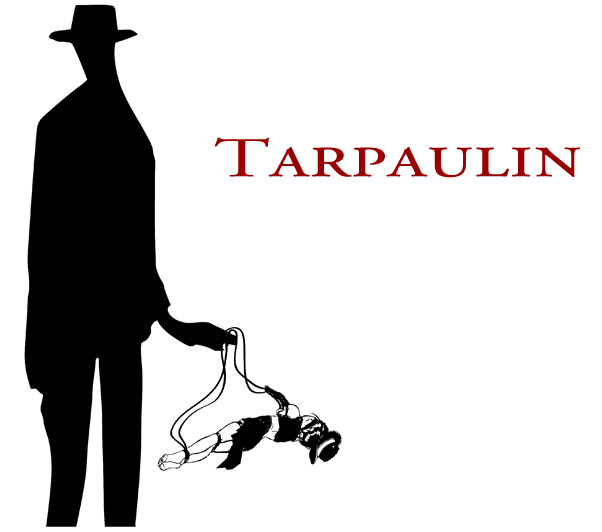 Leaf Weather
Leaf WeatherShira Dentz
Tilt Press, 2009
Staple-Bound Chapbook, 27 pages
$8.00
Reviewed by Valerie Wetlaufer
In the third poem in Leaf Weather, “what transforms a white bough, for instance,” Dentz offers us a recipe for her unique brand of poetry: “let’s make some word water two parts salt one part light influenced by the moon.” The concoction seems apt, for these poems are both organic and otherworldly. Here we are in a landscape of picnic tables, mountains, candlestick towers and metal rains. Each individual object is familiar, but the tableau as a whole feels delightfully strange.
One moves through these poems at a frenetic pace; many words run together without spaces in between, such as in “watercolor tongue” where colors are given an almost painterly quality: “bluegreenyellow air” and “glasslikewater glass” offer us a collage of language applied more likely with brushstrokes than a keyboard. Such moments also foreshadow the calligram a few pages later, in “and now for contemplation,” that recalls Apollinaire. A bucket-shaped block of overlapping words nearly indistinguishable from one another reads, “Ice is an interesting subject for contemplation. Why is it that a bucket of water soon becomes putrid, but frozen remains sweet forever? It is commonly said this is the difference between the affections and the intellect.” The words form both the shape of a bucket and individual ice chunks in the bucket, also seeming to melt together so that the physical form of the poem enacts its subject.
This moment could also be an anthem for the book as the struggle between love and intellect figures prominently in many poems. In the same poem, the speaker contemplates the dual nature of mind and body, saying, “why should my body as i eat trying to find a resting point of no more want love when i park the car. … i want love when i park the lines to be torn in a few spots. i discover i still have senses to open. It is me who cares if i can’t be alive in want love when i park the intellect.” The concept of parking the intellect—or keeping your mind from interfering with your heart and body is a familiar struggle—but one which Dentz tackles in a new way. The conundrum is fresh because we literally see it presented differently (with the calligram) and hear it differently because of the sonic repetitions, which build one upon the other, a crescendo of trouble and sense.
These poems, both conversational and arcane, continue with the powerful “Black Flowers,” an elegy for grandmothers which builds from a (relatively) straightforward narrative to stranger language and form, pushing the boundaries of our expectations, twisting words the way grief does, and again containing a visual element, black scribbles illustrating the line, “A stew of scribbles” that describes the speaker’s "bubby." The final section remixes language from the previous three, repeating motifs and phrases, searching for sense in death, a way out from under what the speaker calls “mourning: the heaviest fabric.”
Throughout the book, Dentz embarks on an exploration of gender roles, writing about a speaker being asked if she has any children, teenage girls gossiping, finding “another source of ( ) am woman a Woman” (“banana chips”), and describing landscape with female features, as in “the road breasts in the mountains” (“A Brook Somewhere Goes Against a White Mountain Discipline”).
There seems to be a connection between these musings on femaleness and nature, both of which feature prominently in the book, mostly because nature is so often described in feminine terms, with a “sun sister,” “the red bottom lip,” and breasts, as well as an eroticization with the yonic red pit of a sunny peach. As men have long seen themselves reflected in nature, so does this female speaker see the feminine side of the outdoors, even engaging Thoreau in the poem, “let the possum go.”
whatever i want so what isDentz urges us in the penultimate line of the book to “shed the fixed landscape” (“sunslips”). Good advice for viewing nature or poetry, and this book does both, altering the reader’s expectation of what a “nature poem”—or what any poem—resembles.
it I can look out Thoreau because saying things
flying across time flying across water
a leaf falls bird flies the way it
starts up.
* * *
Valerie Wetlaufer has lived in Iowa, Vermont, France and Florida. Currently she resides in Salt Lake City where she is a doctoral fellow in the English Department at the University of Utah. Her poems and reviews have appeared or are forthcoming in Poets' Quarterly, Melusine, Word Riot, PANK Magazine, Poemmemoirstory, The Gay & Lesbian Review and Bloom.




